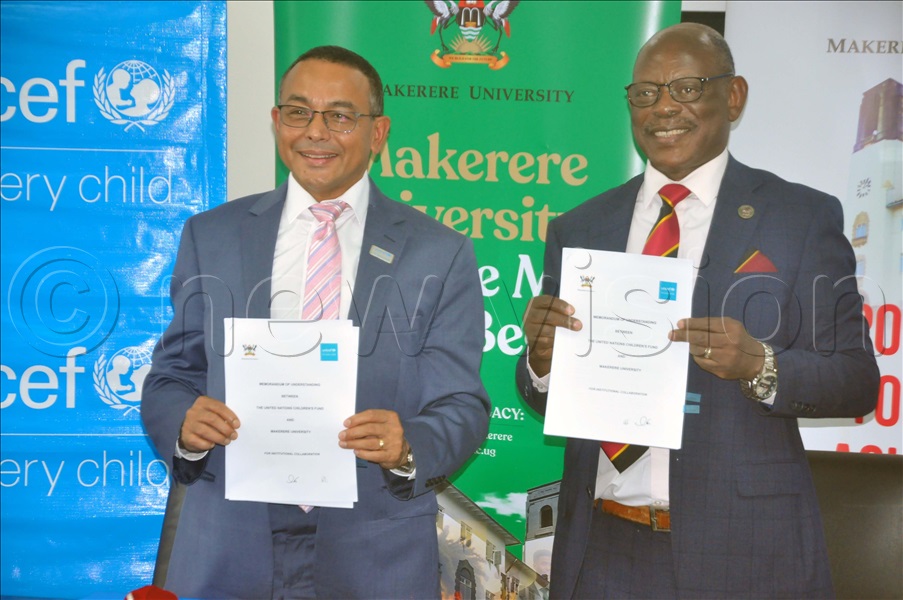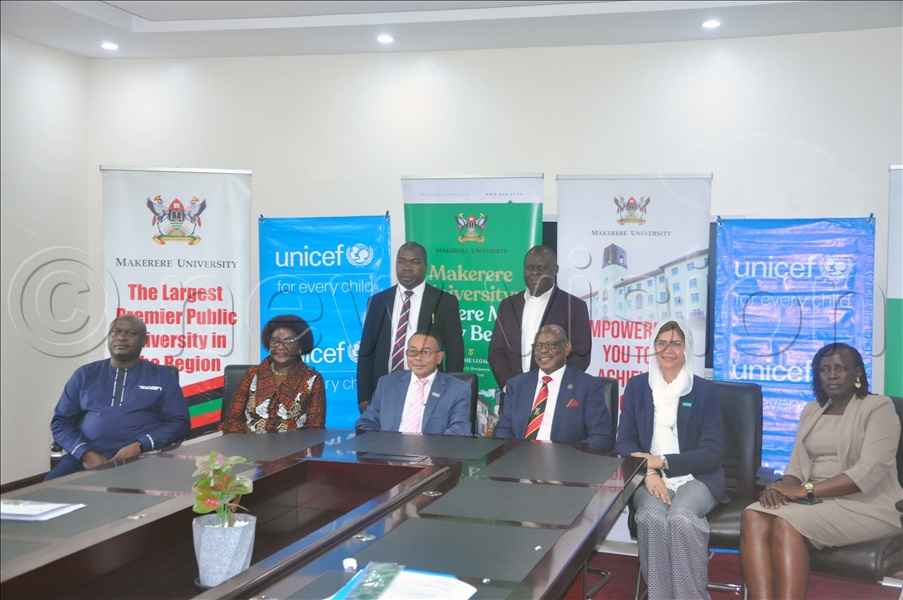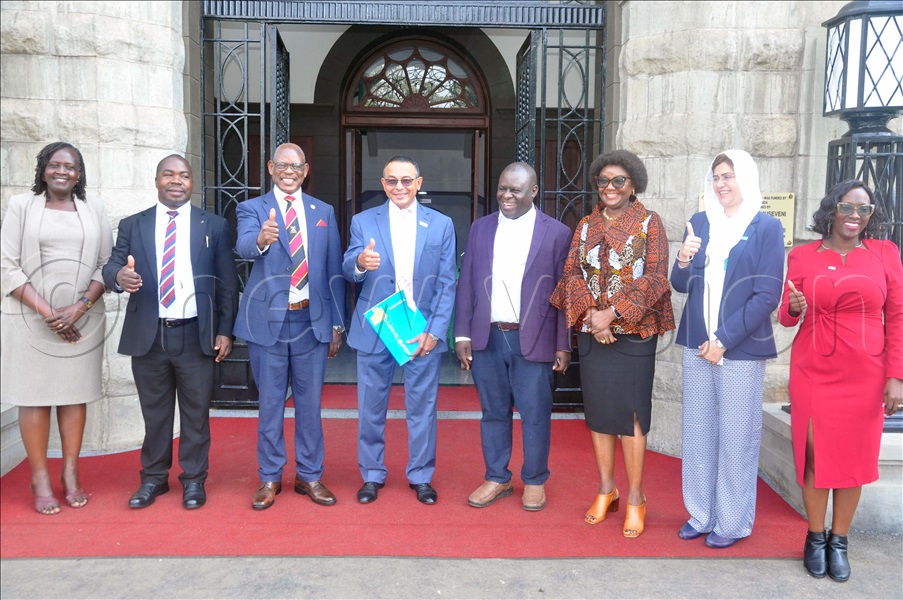Makerere University, Unicef in child welfare drive
Nawangwe stressed that the prosperity of any nation depends on how it cares for its children. “If we neglect children, we cannot have a prosperous nation,” he said.
Prof. Nawangwe (Right) and Dr. Nandy (Left) shake hands after signing an agreement aimed at improving the lives and rights of children in Uganda. The function took place at Makerere University. (Credit: John Odyek)
Makerere University and the United Nations Children's Fund (Unicef) have signed an agreement aimed at improving the lives and rights of children in Uganda through research, training and innovation.
The two-year initial partnership was formalised by university vice chancellor Prof. Barnabas Nawangwe and Unicef representative in Uganda Dr Robin Nandy during a ceremony at the vice chancellor’s boardroom on August 14, 2025.
The collaboration is expected to focus on generating evidence-based policies and programmes to address persistent challenges facing children ranging from malnutrition, adolescent health, early marriage and access to education while contributing to the Sustainable Development Goals (SDGs) by 2030.
Prof. Nawangwe (Right) and Dr. Nandy display the agreement they signed aimed at improving the lives and rights of children in Uganda. The function took place at Makerere University. (Credit: John Odyek)
Nawangwe stressed that the prosperity of any nation depends on how it cares for its children. “If we neglect children, we cannot have a prosperous nation,” he said.
“Makerere has numerous programmes across nearly all colleges that address child-related issues from health and nutrition to education and socio-cultural concerns.”
Nawangwe noted that child malnutrition in Uganda remains alarmingly high, with rates of stunting at about 40%, even in areas where food is plentiful but diets lack balance.
He highlighted Makerere’s history of working with Unicef, particularly through the School of Public Health, on child and maternal health, adolescent issues, and neonatal care.
Nandy said that while Uganda has addressed some easier child welfare challenges, persistent problems remain. “Teenage pregnancy stands at 25%, early marriages are high, and nutritional practices for children are troubling,” Nandy noted.
“This partnership is about uniting scholarly expertise with real-world impact, ensuring our work is grounded in rigorous evidence to safeguard children’s rights.”

Prof. Nawangwe (Third Right) and Dr. Nandy (Third Left) during the signing of an agreement aimed at improving the lives and rights of children in Uganda. The two leaders were flanked by senior officials from both organisations. The function took place at Makerere University. (Credit: John Odyek)
Call for resource-efficient solutions
Nandy warned of shrinking international development funding, underscoring the need for resource-efficient, evidence-based solutions. The MoU will create opportunities for students to gain practical experience through internships and other engagements, nurturing future leaders for children’s causes.
Prof. Rhoda Wanyenze, the principal of the Makerere University School of Public Health, revealed that the school has completed over 30 joint projects with Unicef, spanning nutrition, adolescent health, disease prevention, and health system strengthening.
Current studies include evaluating ministry of health interventions for children with disabilities and tackling malnutrition.
“Adolescent challenges like teenage pregnancies are not purely medical they require a multidisciplinary approach involving health, education, and the humanities,” Wanyenze, the principal explained.
Prof. Peter Waiswa of the Makerere University School of Public Health emphasised that Makerere can generate the evidence needed to influence policy, build capacity, and assess the impact of interventions.

“Uganda’s children must not only survive they must thrive and transform society,” Waiswa emphasised.
Dr. Eric Awich Ochen, the deputy principal of the College of Humanities and Social Sciences, added that their research has addressed issues such as violence against children and primary health care.
Key areas of co-operation
Child-focused research and data generation to guide policy and programmes, evaluation of child-related interventions in health, nutrition, education, and protection, training and professionalisation of the social sector workforce, development and testing of interventions to improve children’s rights and well-being, knowledge management and dissemination to stakeholders.
Other areas are: policy and legislative advocacy for child rights, promotion of child rights champions within the Makerere community, student engagement through internships, skills development and communities of practice.